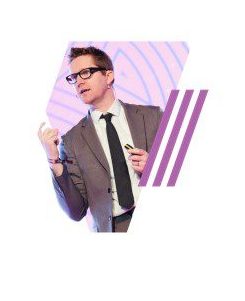Jennifer Dowling: We have to enable people to do their best work
By Jennifer Dowling | 3rd March 2021
IMI executive coach Jennifer Dowling shares her insights on collective adaptability, remote working and how organisations can empower employees.
The following is a transcript of an interview for the IMI Talking Leadership podcast conducted on February 18th, 2021.
Leadership in modern times is about adjustments and making the best of new circumstances. Over the past year, leaders have had to remain nimble and teams are finding new ways to collaborate, but where do knowledge gaps still lie in remote working?
Jennifer: The rate of change and adjustment has been amazing over the past few months. For many people, they are collaborating and working now in ways that they would never have imagined possible 12 months ago. As a starting point, it’s about acknowledging and taking confidence from the depths of our collective adaptability.
The job now is to build on this after a tumultuous 10 months. It’s about identifying what is working, what isn’t and where do we want to be as organisations. There are a few challenges across the board, the most significant of which is communication. Someone famously said that remote working is effectively a communication challenge. Whether you agree with that or not, there is a degree of truth in it. While many of us are surviving virtual communications at the moment, I don’t think we’re necessarily thriving.
Anyone who’s doing six Zoom calls a day and then doing their day job, or going from one call to another and at the end of the day they can’t remember what the first call was about, is not thriving virtually. Remote work offers us a unique opportunity in not just where we do work from, but how we do work. There’s a call for looking at how we shift to more asynchronous communication, how we use technology tools to support more effective collaboration and communication. That’s the space I see the most significant room for improvement.
You mentioned collective adaptability. You’ve said before that a shared mindset is pivotal for companies to function at a high level. How have you seen leaders putting that into practice given what you said about the complications of communication?
Some of it comes back to collective adaptability. Those who understand and embrace and work with that growth mindset in general have flourished in the challenge that they’ve been presented with. They’re adapting faster, learning quicker, embracing challenges as they’re presented. They see challenge as an opportunity to grow and develop, and not as an affront to the fixed and rigid ways we’ve always done things.
It’s also the idea of clarity of what we want to be. For me, the whole remote mindset is closely aligned to the idea of how we can enable people to do their best work. Remote and virtual work is not just where we do work, but how we can enable people to do their best work, period. As an organisation, this shifts the question from where we do work to how we as leaders and organisations empower people to do their best work.
What are the main lessons leaders will take forward from this pandemic, both in terms of style and planning?
The first thing that comes to mind is the value of informal communication. I think the last couple of months have really compounded our understanding of the value of the informal communications when we’ve had such a lack of it. That’s been compounded by the restrictions. But I think that’s had significant cost for organisations and individuals and it’s why I see some form of hybrid being the most likely outcome of all this. I think the importance of communication skills in general, the importance of agility and adaptability and fostering resilience are some of the key takeaways.
In terms of the pandemic and what effect it’s had, organisations seem to have put more of a focus on employee wellbeing and engagement. Do you see that as something that will continue to be emphasised going forward?
This has been so interesting as an observer for the last couple of months. It’s been heartwarming to see organisations putting their money where their mouth is – putting their people first. The impact that has had on organisational trust and reinforcing positive elements of the culture, the organisational culture, is significant.
I talked about this with a few groups lately. What they said was they could better articulate their company’s values and culture now than they could 12 months ago. That was interesting in terms of the impact of the cognizance of wellbeing and employee wellbeing on attitudes. Those who haven’t done this well are really going to struggle. I’ve seen this unfortunately, too, where people feel their wellbeing wasn’t prioritised by their organisation over the past months.
All this comes back to how people can do their best work. We talk about engagement, but talent retention is important too. There’s no denying that remote work is going to be on the agenda for a lot of people going forward. Planning now to track a whole new pool of remote talent and retain our existing talent is going to be crucial for organisations as well.
On the idea that remote working will be the new normal, has there been any pushback or resistance from leaders?
This one is tricky. Even extrapolating the impact of the pandemic on remote working data we have now is nearly impossible. People say they’d like to continue working from home, but when we look at the research – like the NUIG Whitaker Institute research in this country – we saw 94% of people indicating they’d like to have some form of remote work going forward. For most people that’s a day or two a week. If we look at that at a managerial level, Nicholas Bloom in the US has done work with managers and organisations over the past months looking at attitudes. People indicate that they see up to 30% of work being done at home moving forward. There’s lot of indications that this will be a reality.
We have to accept many of the blockers to remote working that existed pre-Covid have been removed. It’s hard to know how people will feel in a few months’ time. It will be interesting to see if people will be anxious to go back in or not, but I think both will probably co-exist. It’s important to remember that what we’re doing now is not remote working; what we’re doing now is working from home during a lockdown due to a global pandemic – and that’s a very different set of circumstances, so I think as leaders there’s been a huge amount of crisis management and for employees the challenges have been different and unique.
How does a hybrid workplace change the calculus for leaders in terms of balancing relationships? The idea of virtual leadership will be central. How do you see leaders changing their ways?
I think there’s a lot of iteration required in that. It’s coming back to the idea of communications and constant learning and growth mindset being essential. Even from a technological perspective, we’re abreast of changes of technology in the last 12 months and we need to be constantly iterating, looking at how we’re doing things. That general idea of ‘are we enabling people to do their best work’ can be the driver and instigator for that way of thinking.
What general advice would you give to leaders as they try to internalise the experience of the past year and try to move forward with optimism?
There’s an awful lot to be optimistic about and there’s an awful lot we have learned over the last 12 months. I think the advice I’d give is take the space now to reflect. We’ve just designed our Virtual Leadership programme with the IMI, and it was designed for leaders to facilitate that space, to shift from what has been a very reactive time to a strategic one. What are the challenges? What can we learn from the last 12 months? What do we need to do differently? There’s a space to experiment using insights of what other organisations are doing well, what organisations were doing well pre-Covid in terms of virtual leadership, what are the tools, techniques and pulling that all together to look forward.
For more IMI Corporate Member Insights, go here. To learn more about the Virtual Leadership programmes available at IMI, go here.








